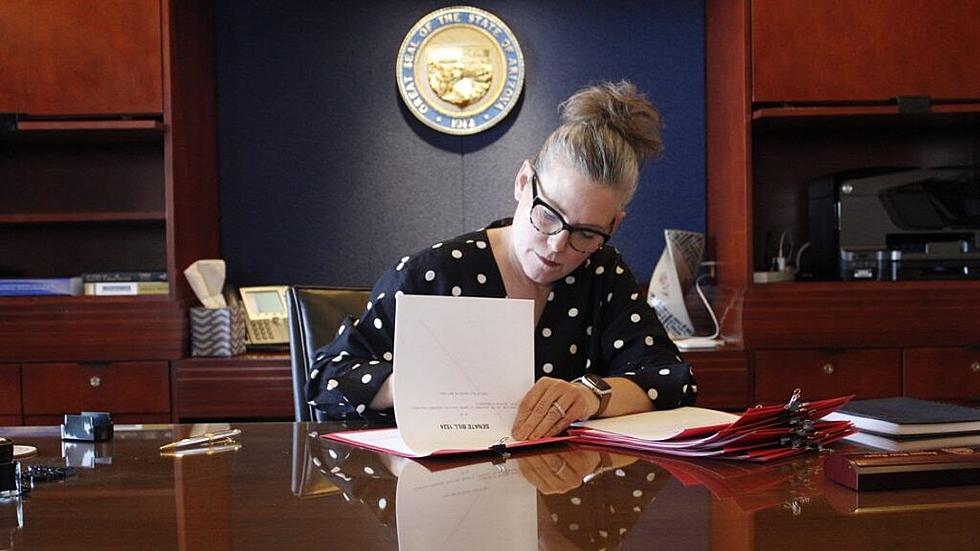
AZ Gov. Hobbs can pick Clean Elections Commission majority
Jim Small
(Arizona Mirror) Gov. Katie Hobbs is entitled to appoint three members to the Arizona Citizens Clean Elections Commission, Attorney General Kris Mayes said.
Hobbs and state Treasurer Kimberly Yee asked Mayes to settle a dispute between them over who gets to appoint a new majority to the commission. On Friday, Mayes issued a legal opinion explaining why she believes state law supports Hobbs’ contention that she, and not Yee, is next in line to make an appointment.
And because all five of the Clean Elections commissioners are holdovers whose terms have expired — and one commissioner is in his second holdover term — whoever gets to make the first appointment would ultimately be able to pick a majority.
Hobbs appointing a majority could be significant, since Clean Elections commissioners are tasked with enforcing the state’s new “dark money” disclosure law that voters approved in 2022. The 2024 election is the first in which that law will be in effect.
It will take a majority vote of the commission to initiate an action against a group that failed to properly disclose the source of its money.
Republicans largely opposed the ballot measure that requires disclosure of otherwise anonymous campaign contributions to third-party groups, though the measure won the support of more than 70% of voters.
In her opinion, Mayes concluded that state law plainly “calls for alternation between the governor and another elected official from a different party.” Under that cadence, former Gov. Doug Ducey was due to make the next appointment beginning in 2018 — but he never did.
That means the next selection remains with the governor, even though partisan control of the office has changed hands — and even though Hobbs made the last appointment in 2017, when she was Senate minority leader and the top-ranking Democrat in Arizona.
In making her case for why the current appointment ought to rest with her and not Hobbs, Yee had noted that when control of the Governor’s Office switched parties in the past — in 2003, when Democrat Janet Napolitano became governor, and again in 2009, when Republican Jan Brewer replaced Napolitano — the appointments alternated between parties, and control didn’t remain with the governor.
In 2002, Gov. Jane Hull, a Republican, made her appointment. But a year later, Napolitano was governor, and she still made an appointment. Likewise, in 2009, after Napolitano resigned and Brewer became governor, the appointment was made by Terry Goddard, the Democratic attorney general, because the 2008 appointment had been made by Brewer when she was secretary of state.
But Mayes said those “two potentially anomalous appointment sequences” don’t change the law, which “is conclusive.” And the courts, she said, can’t “disregard (a) statute’s plain language” to defer to a “common practice” that deviates from the law.
Even though Hobbs will be able to appoint three members to the Clean Elections Commission, that majority will only exist for a year: Mayes also opined that the new appointees should only serve the remainder of the term they’re appointed to, meaning the annual replacement process should pick up in 2025.
And that means Yee will appoint someone to replace one of Hobbs’ nominees.
All five commissioners are required to be replaced before Feb. 1, and both Hobbs and Yee have said they intend to do so. When the pair couldn’t agree on who was legally authorized to make the first selection, they asked Mayes to weigh in.
Yee had initially left the door open to sue if Mayes concluded that Hobbs should appoint the commission’s majority, but she said Friday that she won’t do so.
“While I disagree with the opinion, we will not be challenging it because it would not be a good use of taxpayer dollars,” she said in a written statement. “This does not preclude a private citizen interested in the Commission from challenging it.”
